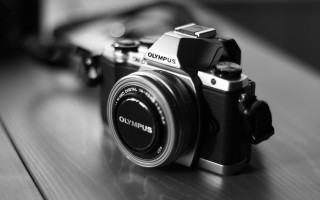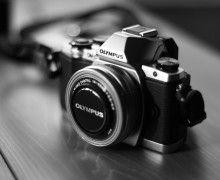Are You Ready For Full Frame? When Should You Upgrade Your Equipment
There is a constant discussion on whether people should upgrade their cameras, or if you as a photographer should upgrade from the non-full frame camera to a full-frame one. There are a great number of discussions on this topic, more precisely whether it would be best for you and your image to upgrade to full-frame rather than wait for the next best thing in the APS-C sensor area.
The question most of the time is, where does the future lie? Especially since cameras like the Nikon D700 have more affordable prices than most full frame cameras used to, making it an actual option even for photo enthusiasts. Whereas it may take a longer time before full-frame cameras are as cheap as non-full frame are, it's certainly a way to think of the future. Then again there is the micro 4/3 option that seems to be raising nowadays.
But enough about the future, what should you do about this right now, is upgrading a good idea? Obviously, it depends, and it does not only depend on your photography budget, but also on what you plan to do with your acquisition. To be frank, the biggest issue you will encounter when moving to the full frame universe is the fact that most APS-C lenses are not suited to work well on full-frame, and most lenses suited to work with full frame cameras can be quite expensive.
There is always the comfort factor as well, most full-frame cameras are bulkier and the lenses attached to them are almost always heavier. But then again, when selecting a camera, it's rarely comfort you are looking for. The major reason for which people used to pick full-frame cameras was that they required high ISO images with a great number of pixels, however, take the Nikon D7000 for example, and you will notice how great it does at very high ISO settings, especially when it comes to large (however not extremely large) prints. At this point, you are no longer compromising when acquiring a APS-C camera, not in term of low-light quality anyway.
But that doesn't mean full frame cameras are obsolete and useless. First of all, there still is that ISO advantage over APS-C cameras, delivering staggering images at high ISO settings (and you can only imagine what future cameras are about to deliver).
One interesting advantage of full-frame sensors is the fact that they allow you shooting photographs that comes with a more shallow depth of field and this is due to larger image sizing. And if you are like me and enjoy incredibly wide-angle lenses, then full-frame is simply insanely great just for this purpose alone.
The age-old pro argument for the full-frame sector is the absence of the multiplication factor - this means that you will now that when you put a 50mm lens on your camera, it's actually a 50mm, not 50mm x 1.5.
Surprising or not, there is not quite a clear answer to the question, and at this point, you should simply be honest and figure out what you need. If a full-frame sensor offers you the image quality you need, and you are willing to invest in heavy expensive lenses that indeed deliver staggering images, then go for it.
If you plan on learning and you feel it will be a long time until you have a chance at actually making money out of photography, maybe an APS-C sensor would not be such a bad idea after all. Remember that a good camera does not make a good photographer, but the other way around it.


